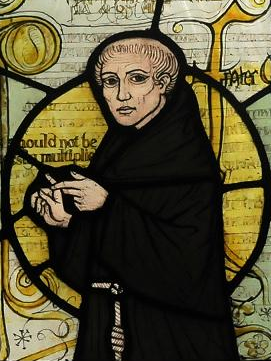As in, who is Occam’s razor – Wikipedia named for?
Occam’s razor (also Ockham’s razor; Latin: lex parsimoniae “law of parsimony“) is a problem-solving principle attributed to William of Ockham (c. 1287–1347), who was an English Franciscan friar, scholastic philosopher, and theologian. His principle can be interpreted as stating Among competing hypotheses, the one with the fewest assumptions should be selected.
William of Ockham (/ˈɒkəm/; also Occam, from Latin: Gulielmus Occamus; c. 1287 – 1347) was an English Franciscan friar and scholastic philosopher and theologian, who is believed to have been born in Ockham, a small village in Surrey. He is considered to be one of the major figures of medieval thought and was at the centre of the major intellectual and political controversies of the fourteenth century. He is commonly known for Occam’s razor, the methodological principle that bears his name, and also produced significant works on logic, physics, and theology. In the Church of England, his day of commemoration is 10 April.

Ockham, Surrey – Wikipedia. Only one pub for a village of 400 people. I’m disappointed.